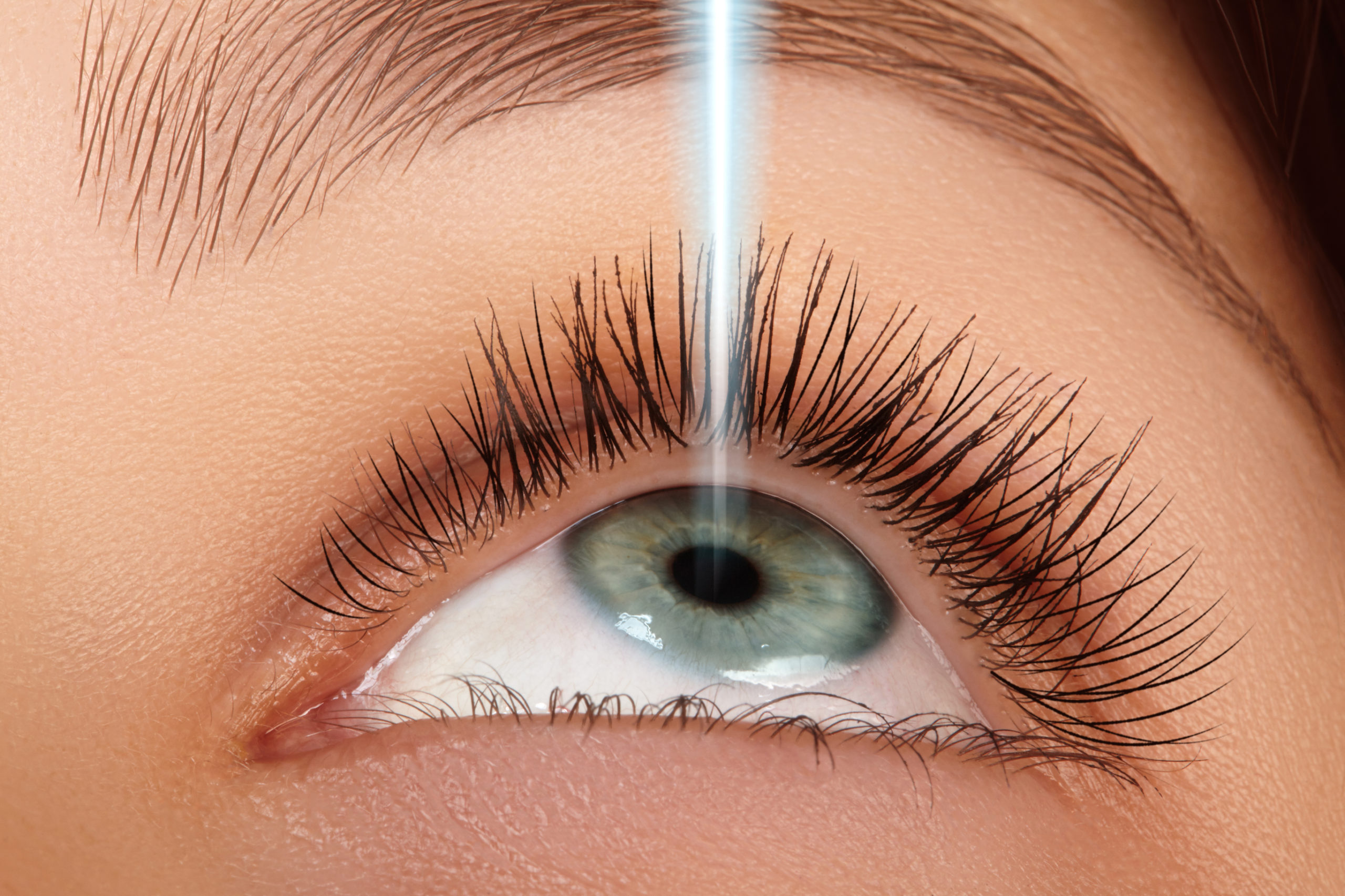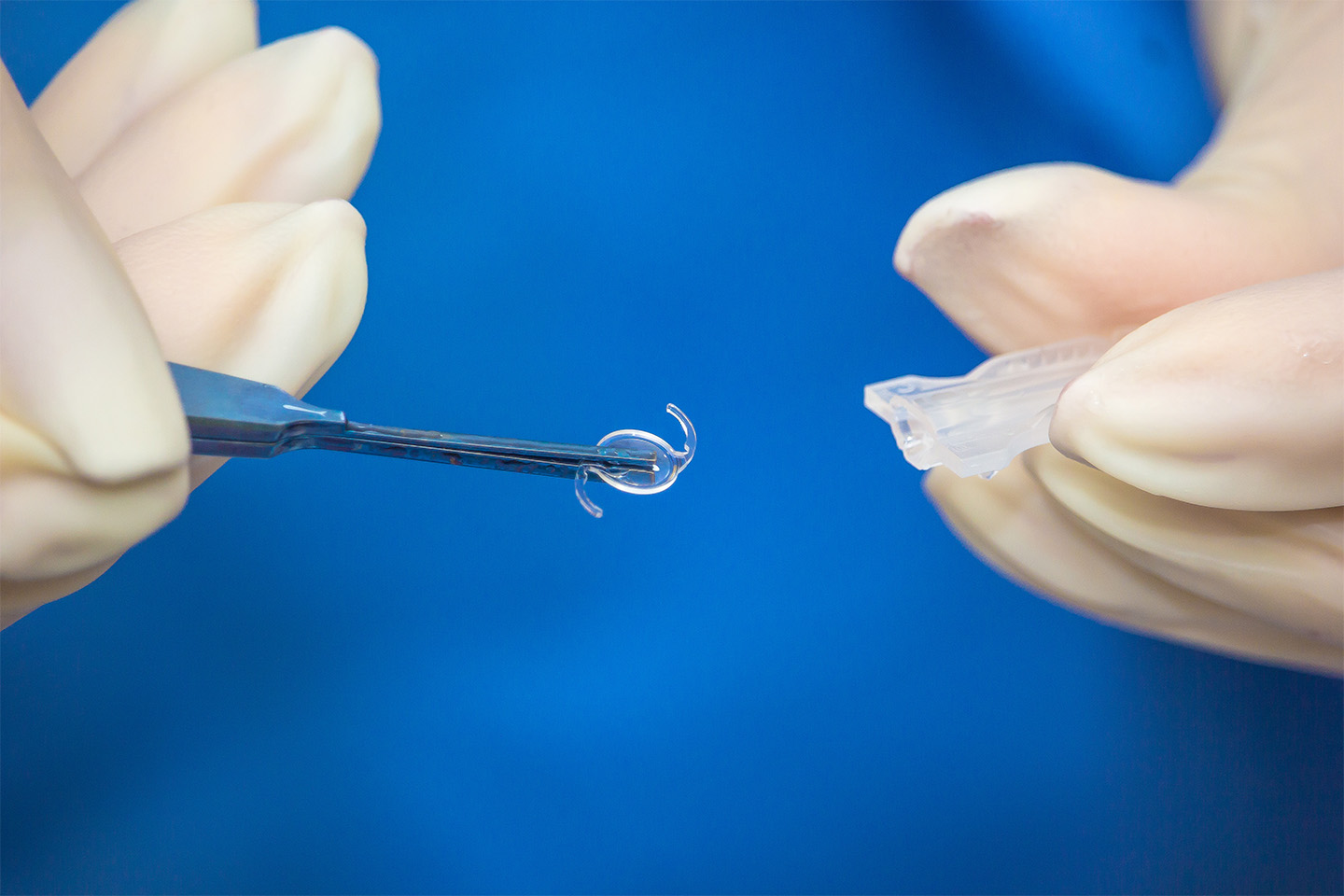What to Expect The Day of Laser Eye Surgery

BEFORE THE LASIK PROCEDURE
On the day of your LASIK eye surgery in Denver, there are no restrictions on what you can eat, drink, or which medications you can take (however it is important to disclose all medications to ICON).
- You are encouraged to eat prior to arriving for your procedure.
- Wear comfortable clothing.
- All traces of make-up should be removed. We ask that you refrain from wearing perfume, cologne, or aftershave, as it can interfere with the laser.
- Contact lenses must be removed from the operative eye prior to the day of your procedure: 4 weeks for Gas Permeable or Hard, and 1 week for Soft.
- You will need to arrange transportation on the day of your procedure. Private automobile or taxi is recommended. You will not be permitted to drive yourself home.
WHEN YOU ARRIVE FOR LASIK SURGERY
Check in with the receptionist. Payment is due on the day of surgery. You will be asked to take care of financial matters at this time unless prior arrangements have been made. Accepted methods of payment are cash, Care Credit, Visa, MasterCard, or Cashier’s Check. No personal checks, please.
IN THE LASIK PRE-OP AREA
Please bring all of your paperwork with you on the day of your procedure, including the packet given to you containing your informed consent and additional release forms. You will be asked to read and sign the consent form with the technician. Should you have any further questions, you will be meeting with your surgeon prior to the procedure. Eye drops will be placed in the operative eye(s) every few minutes prior to the procedure. These include drops to numb the eye (anesthetic) and drops to prevent infection (antibiotics).
INSIDE THE LASER ROOM
Laser Vision Correction is performed in a few small steps. Most procedures take less than 10-15 minutes. The Laser is calibrated and programmed with your prescription before you even enter the Laser Room. It will take a few minutes to position you properly under the laser microscope. Your non-operative eye will be covered during the procedure simply to help you focus on the eye that is under the laser and on which the surgery is being performed.
In order to prevent you from blinking, a device known as an eyelid holder, or speculum, is used to keep the eye open during surgery.
You will be instructed to look at a flashing red or green target light. Your surgeon will monitor your eye through the microscope at all times. The laser makes a clicking or snapping sound, this is normal. You will also feel some pressure which is normal.
AFTER LASIK SURGERY
When LASIK surgery is complete, the surgeon will take a look at your eyes one more time in the Post-op Exam Room. You will be given a post-operative kit containing medicated drops, eye shields, and artificial tears. Instructions for use of the eye medications will be given to you, verbally as well as written in your “Post-op Instructions.” Your driver will then be able to take you home to rest.
EXPECTATIONS
There are a number of key features about the way your eyes will feel and how your vision will behave that are normal and temporary. Moments after your procedure your vision may still be relatively blurry. It is not until the day after surgery that you can begin to notice an improvement in your distance vision. Between your departure from the clinic, and the time you go to sleep, you may experience some discomfort. This is common with LASIK. You may have the sensation that something is in your eye. You may also have excessive tearing. Your eyes may be sensitive to light and may burn when attempting to open them. Do not be alarmed, these symptoms are normal and temporary. The remedy for this is sleep or simply keeping your eyes closed as much as possible for the remainder of the day.
Typically, eyes require 3 to 4 months for the vision to stabilize. Your vision can fluctuate for the first 1 to 2 months. This is part of the healing process. If your vision is blurry beyond 20/40 temporary glasses may be required. Later, if your doctor feels you could benefit from a second treatment; plans are then made at approximately 3 months and never sooner. The vision must stabilize first.
Driving at night may be difficult due to glare and/or blur. This is an expected, temporary, side effect. This usually resolves within 2 to 4 months. You should avoid driving and operating hazardous equipment if you are not comfortable with your vision. For the first few weeks after LASIK, you may need artificial tears.
Request An Appointment.
Give us a phone call at (970) 256-0400 Monday – Friday, 8am-5pm to schedule a consultation.










 (970) 256-0400
(970) 256-0400